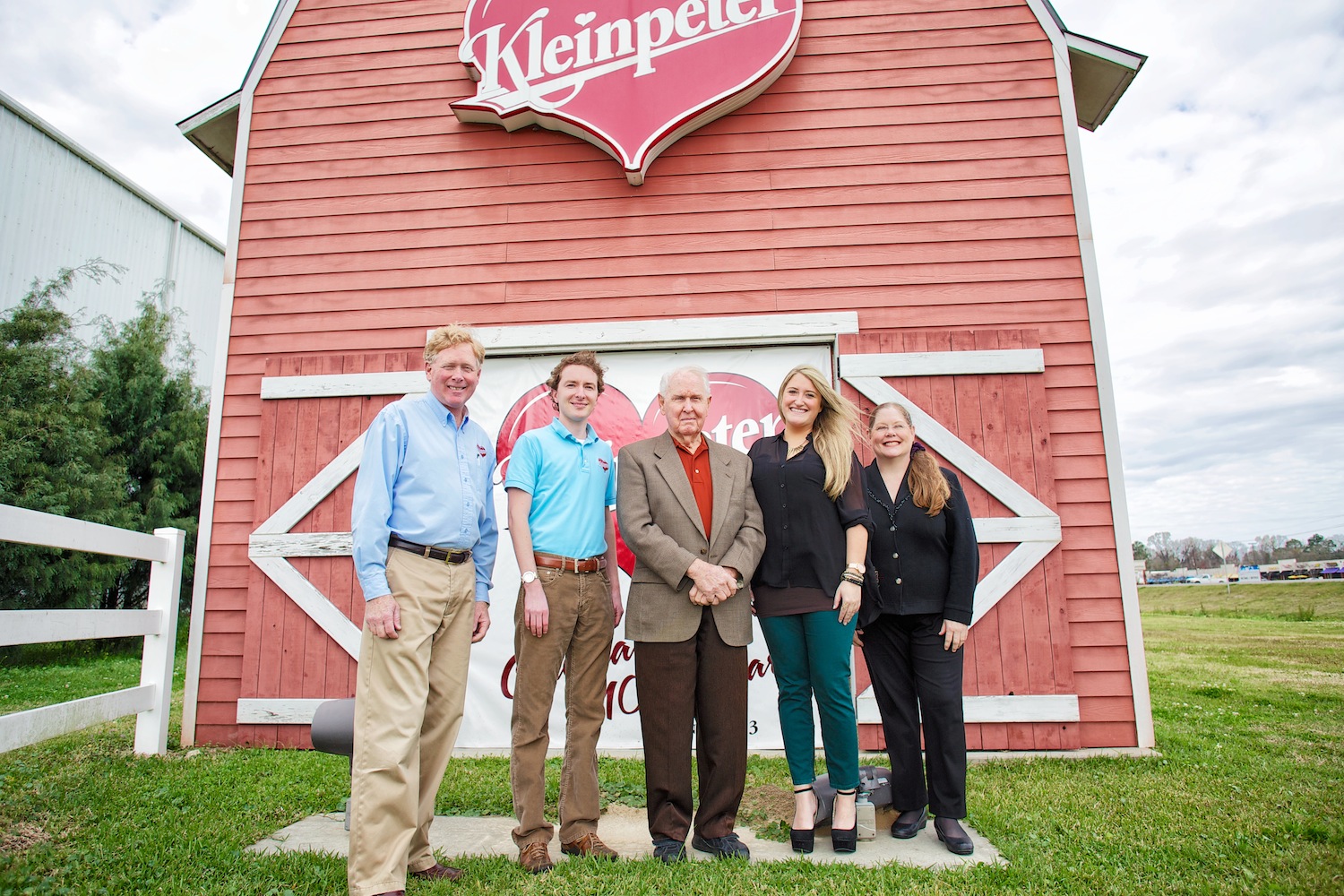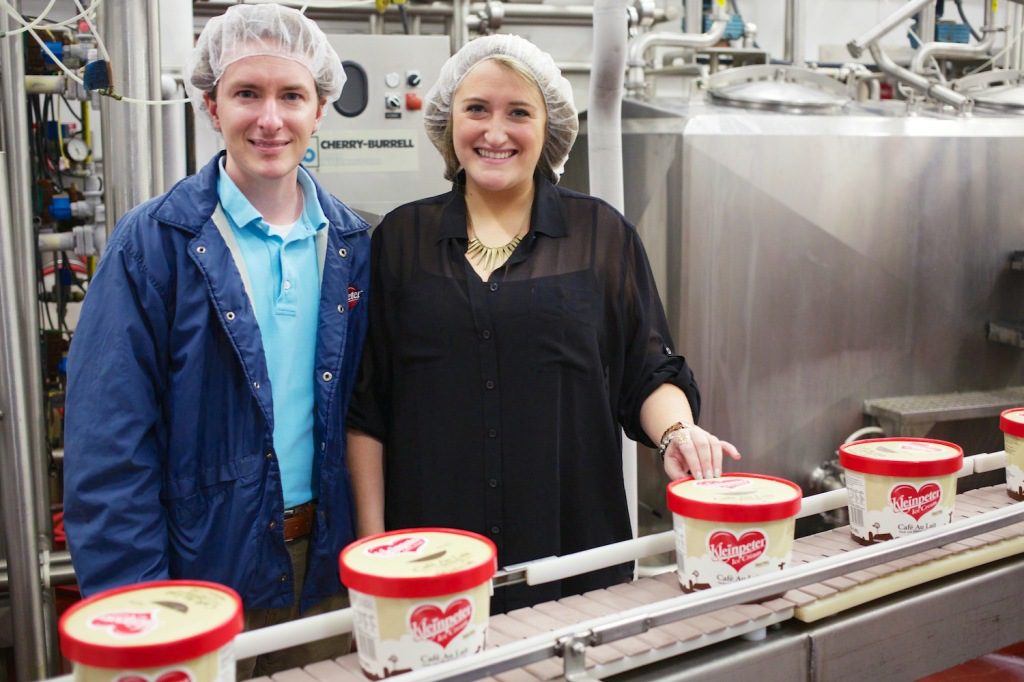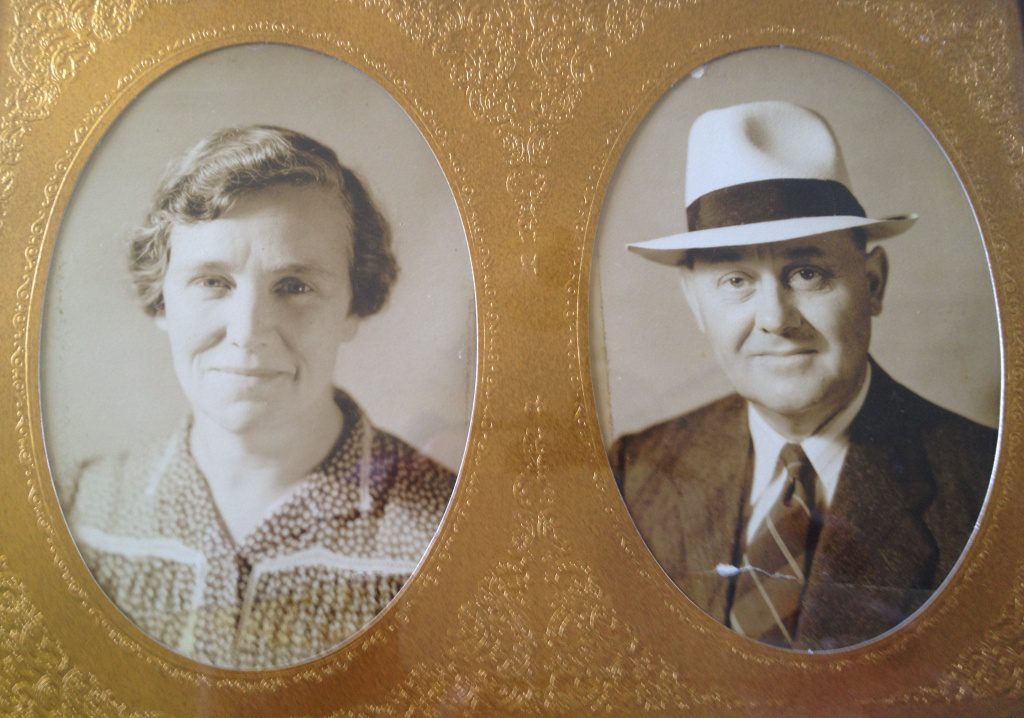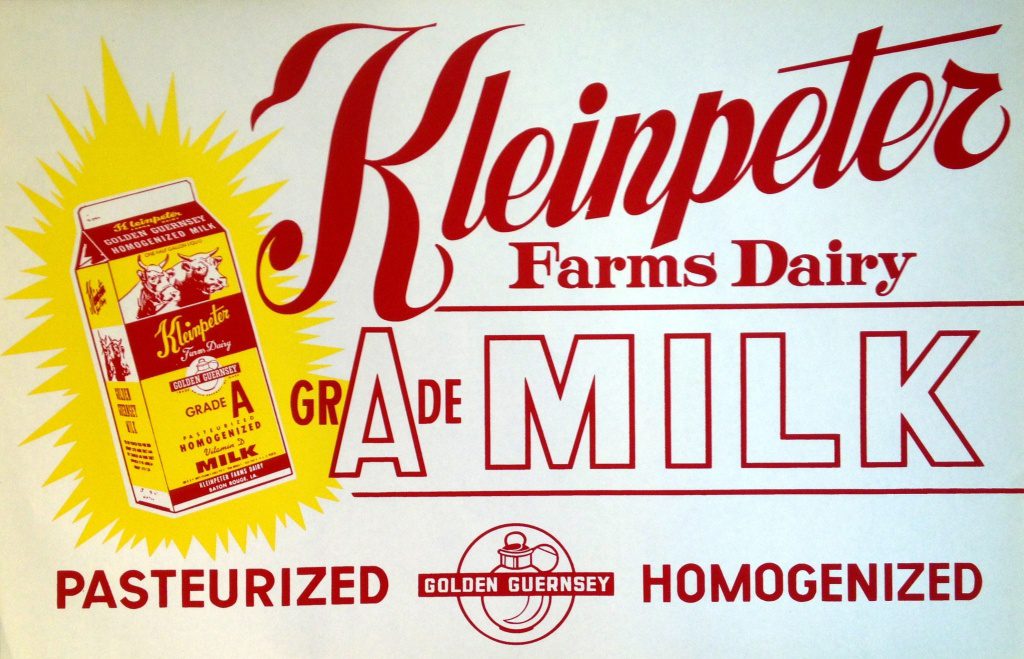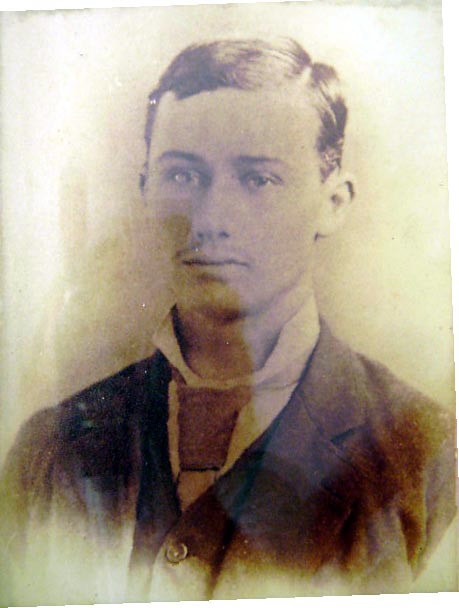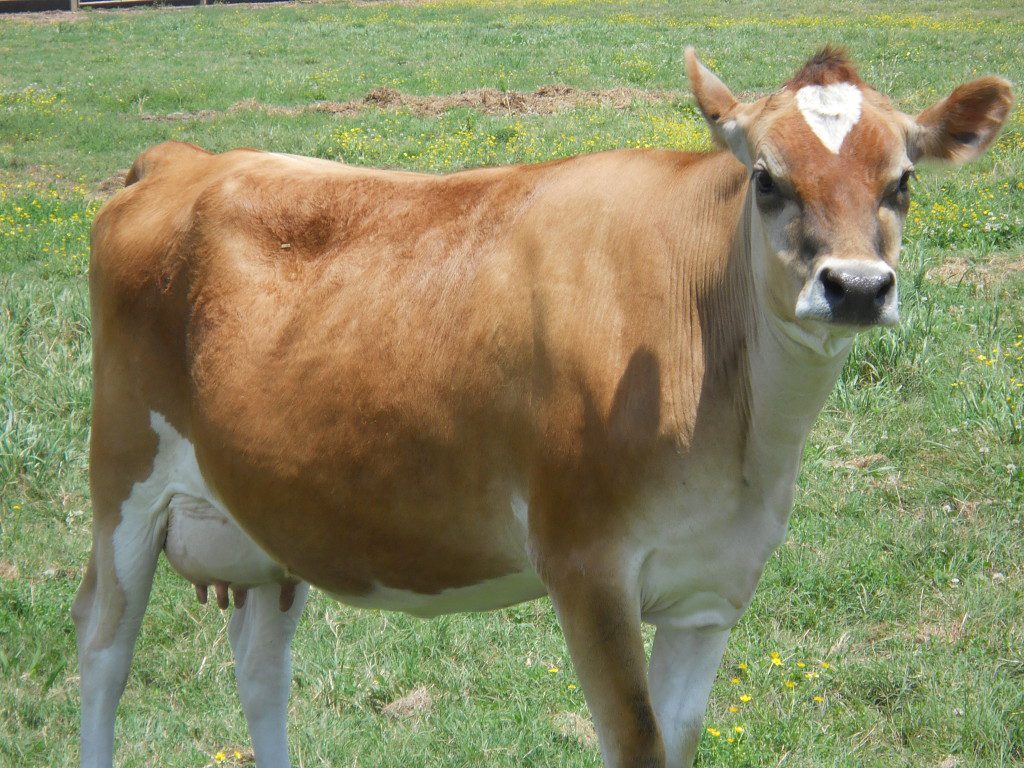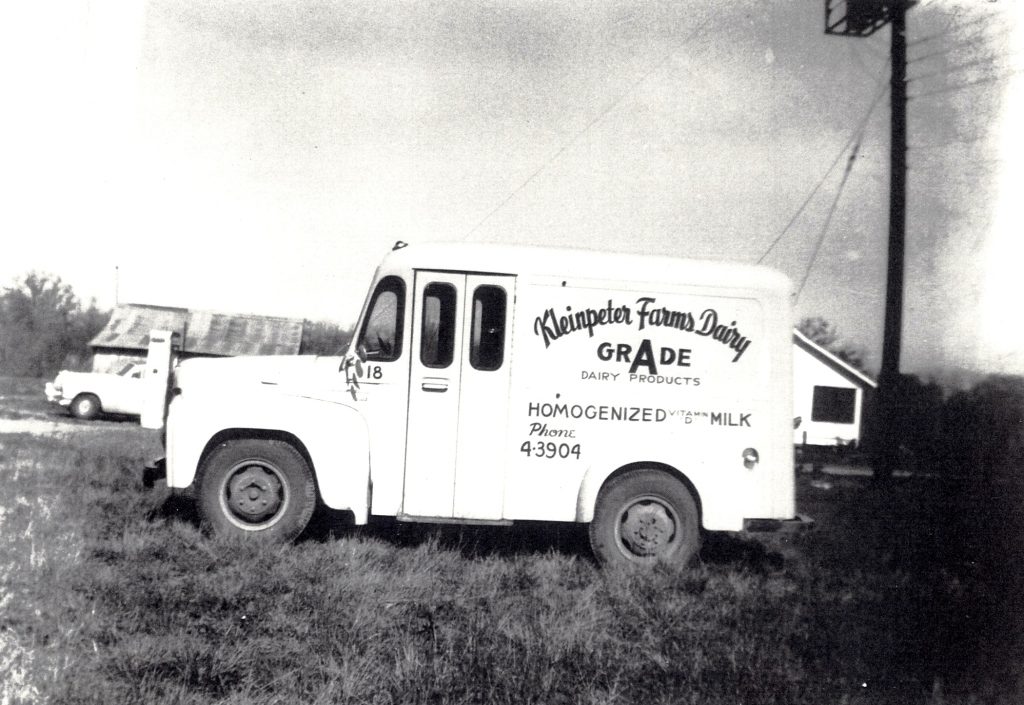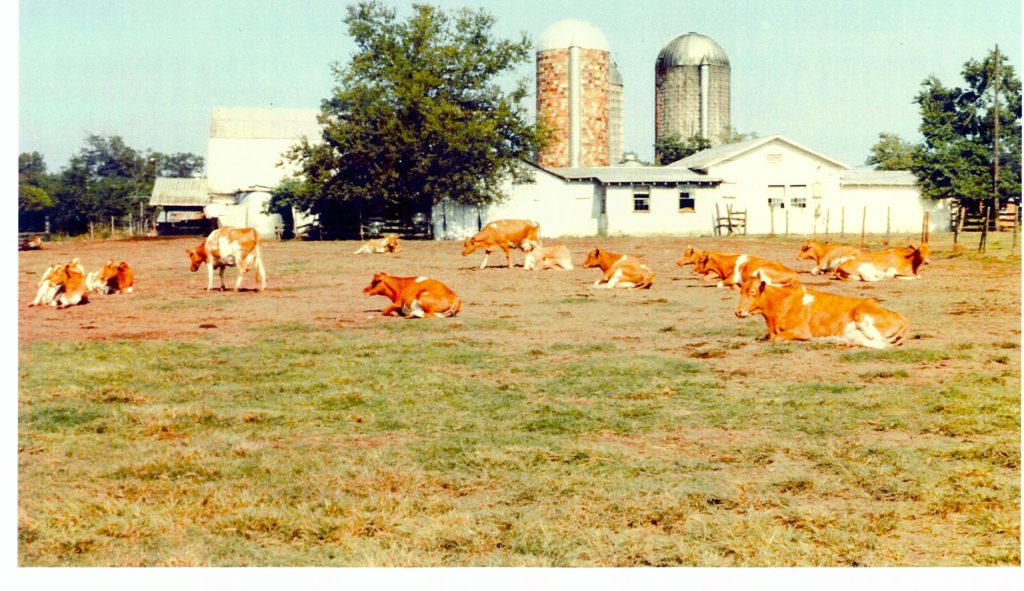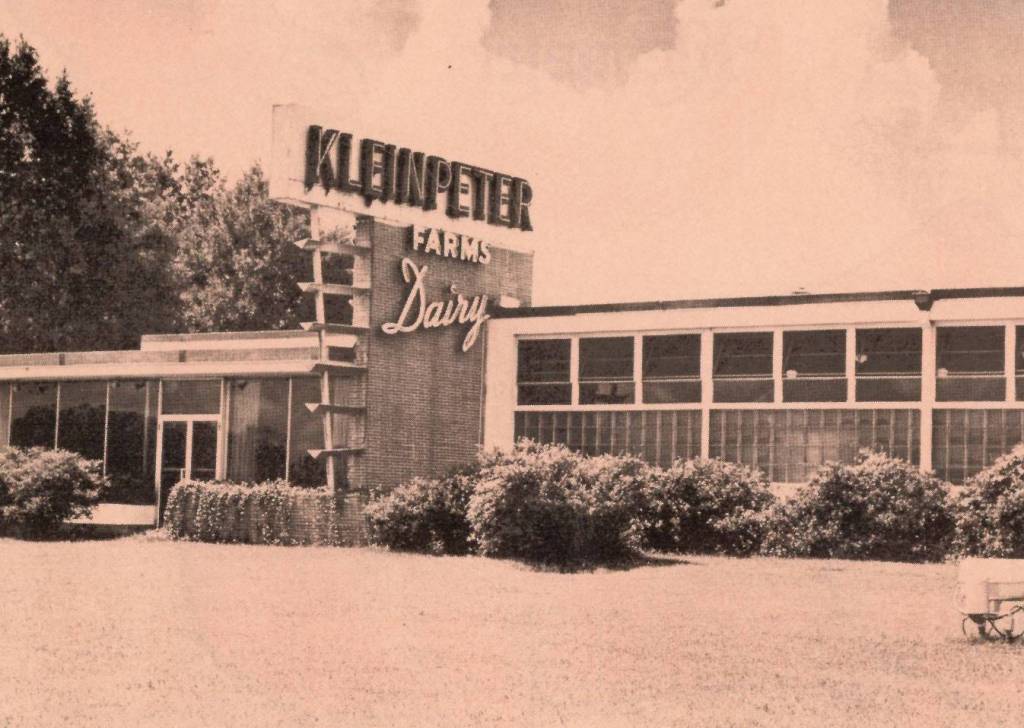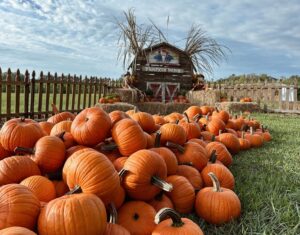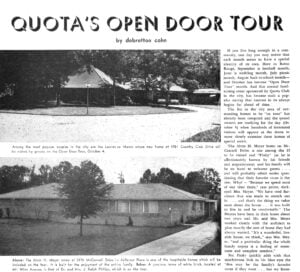The Cream Rises
A mission of caring for cows and customers alike underlines the Kleinpeter family dairy’s century of success
It’s good to be a cow—especially if your caretakers are the folks at Kleinpeter Farms Dairy. Just like members of the family, each animal in the herd at the company’s 1,500-acre farm in Montpelier is known by a personal name, not just a number on an ear tag.
“It just brings a humane touch,” says dairy President and CEO Jeff Kleinpeter, the latest in a long line of family members to manage the firm. “It’s a more personal way to do what we’re doing, and I think it helps us all to care for them a little bit more, too.”
There’s more to this mantra of “cow comfort,” which is a critical part of the Kleinpeter business model. Shade structures, fans and misting systems keep the 1,200 cows cool during Louisiana’s steamy summers. Animals have ample time to graze in green pastures, and their diet is supplemented by a customized feed made with corn and hay grown right on the farm. Electric cattle prods and whips are forbidden; instead, employees speak gently and move slowly. It all reflects the truth of one of Jeff’s favorite claims: “We love our cows.”
As Kleinpeter Farms Dairy celebrates its 100th anniversary this year, it’s appropriate that the company’s focus is still on the cows that started it all. But even as its family owners maintain their old-fashioned values, a new generation of Kleinpeter kin is poised to guide the firm into a new century of growth.
Back in 1913, Jeff’s great-grandfather Sebastian “Sib” Kleinpeter and his son Leon Kleinpeter Sr. began a small local dairy business, one of dozens in the Baton Rouge area at the time. As the family grew, so did the company. Ben Kleinpeter, Jeff’s father, was one of 11 children born to Leon Sr. and his wife Lillian. They grew up in a house near the barn at the old Kleinpeter farm, which stretched across thousands of acres in what is now south Baton Rouge, from where the Country Club of Louisiana is today to across Airline Highway from the current Kleinpeter Farms Dairy headquarters.
Cows grazed freely on the property, and Ben recalls waking in the wee hours to usher them across Highland Road and back to the barn for their regular milkings. It was hard work, yet for this family it was simply a part of who they were.
“It was seven days a week taking care of the cows and the business,” says Ben, who took over the company from his brother, Leon Jr., in 1987. “We kept everything spotlessly clean, and we were able to produce good, fresh milk that would usually keep longer than milk from the other dairies. We were on the job regularly; you could have hurricanes, ice storms … but we were like the mailman.”
Those values are why Ben says his family’s company has been able to survive and thrive for a century, even as nearly all of its competitors—large and small—have folded. It wasn’t always easy, he admits. When he and his two older brothers served in the Army during World War II, the two youngest Kleinpeter boys, Vincent and Mike, “carried everything” while still attending high school. Later, hurricanes destroyed barns and caused prolonged power outages that necessitated going back to the old method of hand milking. “Those were tough,” he says. “But we had an obligation to supply good milk.”
Jeff and his sister Sue Anne Kleinpeter Cox, who now serves as the dairy’s CFO, also grew up on the family farm with their five siblings. It was an almost idyllic experience, living within easy bike- or horse-riding distance of the homes of all of their dad’s brothers and sisters and their families. “We lived so far out, there was nobody else out here,” Sue Anne recalls. “If a car was coming by, it was an aunt or an uncle. We more or less had 11 sets of parents.”
The children spent carefree days chasing cows to help round them up, climbing silos and playing with farm cats. As teenagers, Jeff and Sue Anne and many other young family members worked part-time on the farm. “That was always fun for us, and there wasn’t anything else to do,” says Jeff.
In 1974, construction of Interstate 10 through this end of town was completed. “That was the beginning of the end, really, for our dairy farm location in Baton Rouge,” Jeff says. “Neighborhoods started popping up. Land was selling for high prices.”
Eventually, the family conceded that it was no longer able to keep up a large dairy farm in the burgeoning residential and commercial zone, and the farm ceased operation in 1982.
“It was the end of an era for us,” says Sue Anne, “and pretty much the end of our childhoods.”
But it wasn’t the end for Kleinpeter Farms Dairy, which kept processing and selling milk produced by other local dairy farmers around the state. The family never forgot their four-legged friends, however, and in 1998 Ben made the decision to buy a farm in St. Helena Parish and return to the company’s milking roots. By then, both Jeff and Sue Anne were on board at the company full-time, and they were excited about the new addition, as many customers were.
“We were ecstatic when we bought those cows again,” Jeff says.
Ben, now 86, eventually passed the company’s reins to his children—including Jeff and Sue Anne’s other siblings, who share ownership but do not work here—but he still comes to the plant every morning, keeping in touch with all that goes on and warmly greeting employees in the offices and bottling facilities. The team of 187 full-time staff members might not all be related by blood, but they still share a sense of loyalty with management that has kept many of them here for decades. “This company wouldn’t have a good product if it didn’t have good people working and doing their best,” Jeff says.
Kleinpeter’s loyalty extends to customers and the community as well. If someone has a problem with his milk, the company will make it right, no questions asked. When the dairy decided to launch a line of ice cream, it made a point of using local ingredients like pecans from New Roads and strawberries from Ponchatoula.
When customers began asking for milk from cows not treated with the growth hormone rBGH, the Kleinpeters were happy to reveal that they and their network of family-farm milk suppliers were already avoiding the synthetic hormone.
“We know from experience that you can buy better products if a family stands behind them,” Jeff says. “Those kinds of things, although they sound like clichés, really do mean something to us.”
A hundred years after Sib founded the business, a fifth generation of Kleinpeters is now entering the company, with their own dedication to the business as well as a batch of fresh ideas. Stanford Ponson, the 27-year-old son of Jeff and Sue Anne’s sister Jan, is something of a jack-of-all-trades here, working in plant operations, routing, the mechanical shop, and more. He also serves as the firm’s voice in social media; his “Milkman Monday” features on the Kleinpeter Farms Dairy Facebook page, in which he highlights a historic image or fact, have helped to increase its fan base by the hundreds.
“I don’t have a business card because I don’t have an official title,” Stanford says, recalling times when family and staff members from the top down have pitched in to load trucks or unload milk crates. “This is really a team effort. We all work together.”
Jeff’s daughter Taylor will graduate from Southeastern Louisiana University in May and begin her full-time career here with a three-month stint on the farm, just as Stanford did. Even while attending college, she has been involved with the company, helping with its marketing efforts and spearheading a recent animal-shelter donation drive held in conjunction with the birth of a new calf.
“We’re able to bring different things to the table they might not have thought about,” says Taylor. “But I know our service is what makes our customers loyal. We stand behind our name, and we’ll always do that.”
One of Stanford and Taylor’s most recent projects has been planning for the company’s centennial celebration. There will be special events and promotions, including limited-edition old-fashioned bottles that will be filled with rich 4% milkfat milk reminiscent of the company’s old “Golden Guernsey” variety. The bottles will be on store shelves this summer. It will be a true taste of history for Kleinpeter’s devoted customer base—a population that, just like the cows and the employees, this company thinks of as family.
“Our products sort of give people a sense of nostalgia and of how things can still be done right,” says Jeff. “They know they’re buying a pure, high-quality product that we put together with tender loving care. And after doing that for 100 years, that’s inspirational.”




